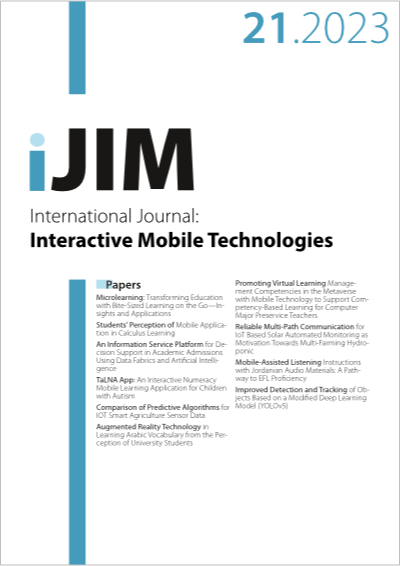Augmented Reality Technology in Learning Arabic Vocabulary from the Perception of University Students
DOI:
https://doi.org/10.3991/ijim.v17i21.41277Keywords:
arabic vocabulary, augmented reality, learning, perceptionsAbstract
Augmented reality technology has been widely adopted in various fields, particularly in the realm of education. In the west, this technology has been applied to various foreign languages such as Malay, English, Chinese, Spanish, French, and Ukrainian. However, in the context of learning Arabic in Malaysia, the use of this technology has been less explored, particularly from the perspective of students at the public university level. Hence, this study aims to examine the level of perception among students at University Sains Islam Malaysia (USIM) regarding the use of augmented reality as a new technology in Arabic language learning today. A questionnaire was used in this study to collect data from a sample of 30 respondents. Analytical findings on frequency distribution, percentage, mean, and standard deviation were obtained through descriptive statistical analysis. Cronbach’s alpha analysis showed that all eight items of the questionnaire had good internal consistency. The overall mean score of the items was 4.48, indicating a high level of data interpretation. Based on the analysis of the findings, the study revealed that the majority of students responded positively and expressed satisfaction with their readiness to use augmented reality in language learning. In conclusion, augmented reality is a valuable learning aid that can greatly benefit students in understanding Arabic vocabulary more easily.
Downloads
Published
How to Cite
Issue
Section
License
Copyright (c) 2023 NOR FATINI AQILAH MOHAMAD SOAD, DR. LILY HANEFAREZAN ASBULAH, TS. DR. MUS'AB SAHRIM

This work is licensed under a Creative Commons Attribution 4.0 International License.



